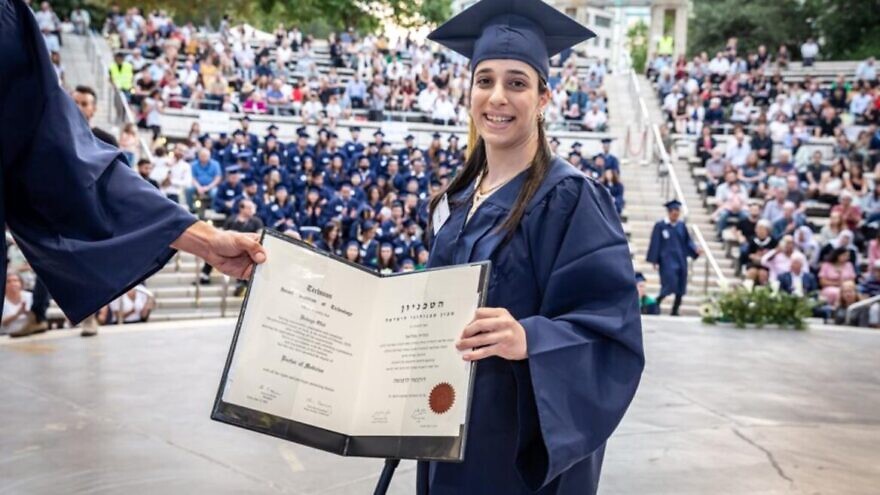March 8, International Women’s Day, celebrates the social, economic, cultural and political achievements of women. Here we present short and inspiring snapshots of 10 highly accomplished Israeli women who overcame considerable odds to get where they are today.
HODAYA OLIEL, Israel’s first physician with cerebral palsy
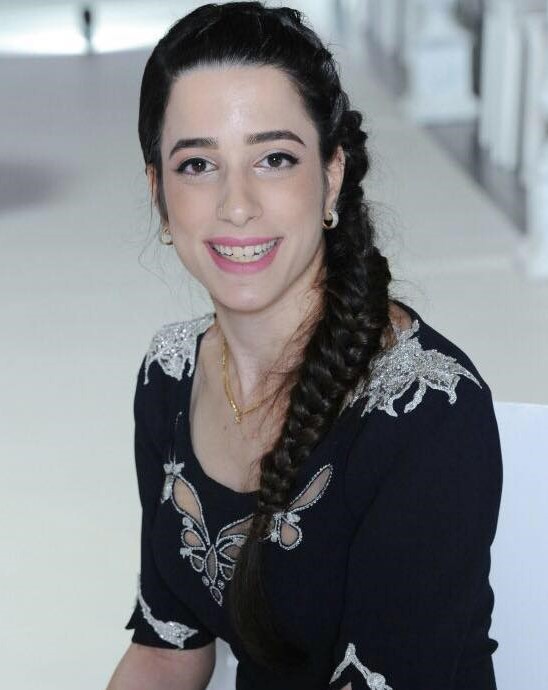
With the support of her family, friends, “good people I met along the way” and her strong faith in God, she says, she was determined to channel her experiences into becoming an exceptionally empathetic pediatrician.
After graduating from the medical school of the Technion-Israel Institute of Technology in 2019 as the first Israeli physician with cerebral palsy, Oliel began her pediatric residency at Shamir Medical Center in Be’er Ya’akov, where she spent so much of her childhood as a patient.
“My advice to everyone who is in my position is not to give up,” she says. “Everybody in life has difficulties they need to deal with, even if we don’t see them. Try to find creative solutions and give yourself daily boosts of confidence. Above all, help others — it will make you feel good about yourself and give you strength.”
MOUNA MAROUN, neurobiology professor at the University of Haifa
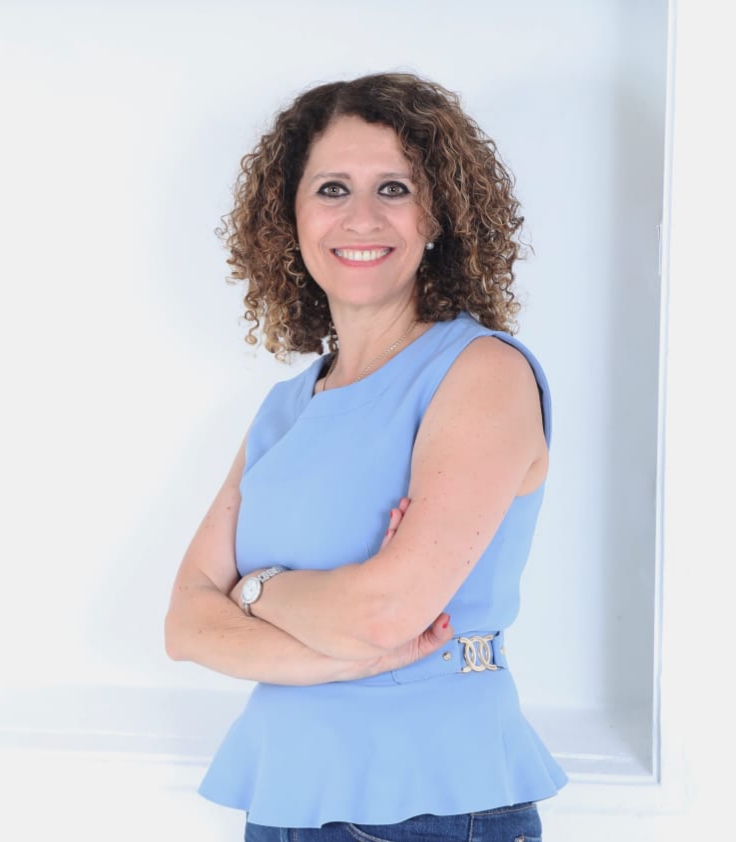
Mouna Maroun, 52, was the first Arab Israeli to earn a PhD in neuroscience (biological psychology, to be exact) and the first Arab Israeli woman to become a professor of neurobiology (at the University of Haifa, where she earned her PhD).
Maroun, whose research focuses on how the brain regulates emotions under normal and pathological conditions, sits on the Israel Council for Higher Education’s Planning and Budgeting Committee and chairs its steering committee on access to higher education for Arab students in Israel. She also is a former member of the board of governors of the US-Israel Binational Science Foundation.
Maroun says that she didn’t overcome obstacles—instead, she ignored them.
There were plenty of them to ignore.
“First of all, I come from a family with two parents who didn’t finish fourth grade. We had a very low socio-economic level. But they encouraged us to study and learn,” she says.
Nevertheless, she achieved only average grades and wasn’t accepted into medical school to pursue her dream of being a physician. Still, she was highly motivated to have a career in science.
She was the first from her village to study abroad, going to France for her postdoc research in 2000. Today, she often speaks in Arab schools to encourage boys and girls to study STEM subjects.
As an Arab Maronite Christian woman, Maroun is a minority within a minority within a minority in Israel.
“I don’t know what it feels like to be in a majority. But I was determined to make a difference, and so were others in my family from my generation. In my family, there are now three professors, 20 lawyers and five doctors,” Maroun says.
SHEINA VASPI, Paralympic skier
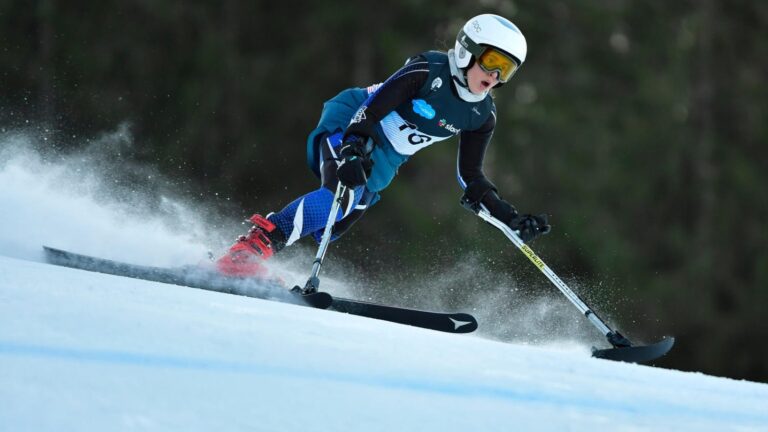
Twenty-year-old downhill skier Sheina Vaspi will be Israel’s sole competitor at the Winter Paralympics in Beijing (March 4-13).
When she was three years old, her left leg was amputated following a serious car accident. She started skiing about four years ago through the Erez Foundation, a nonprofit organization established in 1999 by veterans of the Israel Defense Forces’ Alpine Unit to help disabled soldiers and children with special needs push the limits and get out on the slopes using adaptive equipment.
“Snow skiing is an extreme sport that gives me a feeling that cannot be explained in words,” says Vaspi, who went with an Erez delegation to volunteer with disabled children in Bulgaria.
She trains in the United States under Scott Olson at the National Sports Center for the Disabled in Colorado. Remaining faithful to her family’s Lubavitch Hasidic lifestyle, she wears a skirt over her ski pants and does not ski on Shabbat.
Professor Sarab Abu-Rabia Queder, Ben-Gurion University Vice President for Equality and Diversity
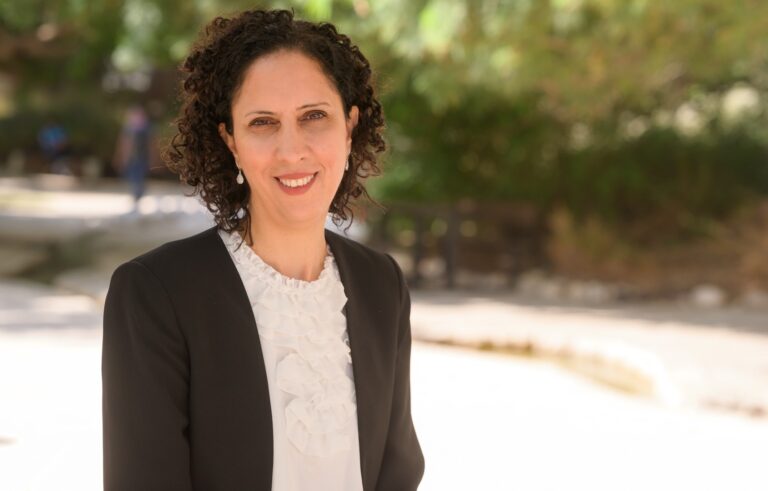
Born in 1976, Abu-Rabia Queder became the first female Bedouin Israeli to earn a PhD. She’d wanted to be a lawyer, but because her parents didn’t want her to live away from home in Beersheva, where there was no law school, she found her calling in education.
She fought to marry a man from a different Bedouin tribe, something frowned upon in the conservative Negev Bedouin culture. That was one of the experiences that propelled her to research the role of women in Arab societies.
She has written or edited books including “Excluded and Loved: Educated Bedouin Women’s Life Stories” and “Palestinian Women in Israel: Life and Struggle from the Margins.”
After earning her doctorate at Ben-Gurion University, she joined the department of education and taught Bedouin culture and Arab feminism. Abu-Rabia Queder is the first Arab woman from the Negev promoted to a professorship at BGU.
In June 2021, the university appointed Abu-Rabia Queder to the new post of vice president for equality and diversity. At this three-campus university of 20,000 students and 6,000 staff and faculty members, she is responsible for equal representation of Arabs, women, those with disabilities, Ethiopian immigrants, haredim and LGBTQ+.
“My research over the years has led me to understand the need for correcting injustices,” she said. “I have the burning desire to help ‘the other,’ to be there at the points that can make a difference. I am proud to have been appointed and gratified that the university administration saw fit to do so.”
DINA SAMTE, soloist with The Shalva Band
Samte is a member of the Bnei Menashe Jewish community, one of the Lost Tribes of Israel.
She was born vision-impaired and totally lost her sight at age six, four years before her family immigrated to Israel in 2007 from Manipur, India.
In Israel, she flourished as a student at the Jerusalem Institute for the Blind. But in India, she has been unable to attend school because of her disability. Forced to stay home, she often sang along to music on the radio.
Her mother, a guitarist, started writing music for her. She performed her mother’s song about blindness at a music festival when she was eight.
“They dressed me in a pink dress and I sang on stage. Suddenly I understood that I had been given a gift,” Samte told the Israeli women’s magazine LaIsha.
“True, I couldn’t see, but I could sing. Already I was less sad. I found a reason to live: the dream that I would be a famous singer, that I would move people with my song, that I would touch them through music and show that despite the disability I am a person.”
Samte indeed became a famous singer. She and her friend Anael Khalifa—who also is blind—are soloists with the internationally acclaimed Shalva Band, comprising professional musicians with disabilities affiliated with Jerusalem-based nonprofit organization Shalva.
In 2017, she was chosen as the first Bnei Menashe community member to light an Independence Day torch in Jerusalem.
LINOAM ELIAD, CTO of Helios
Linoam Eliad, 49, is the chief technological officer of Helios, which is developing technologies to extract and utilize metals and oxygen from the soil of Mars and the Moon as fuel and construction materials for future space missions.
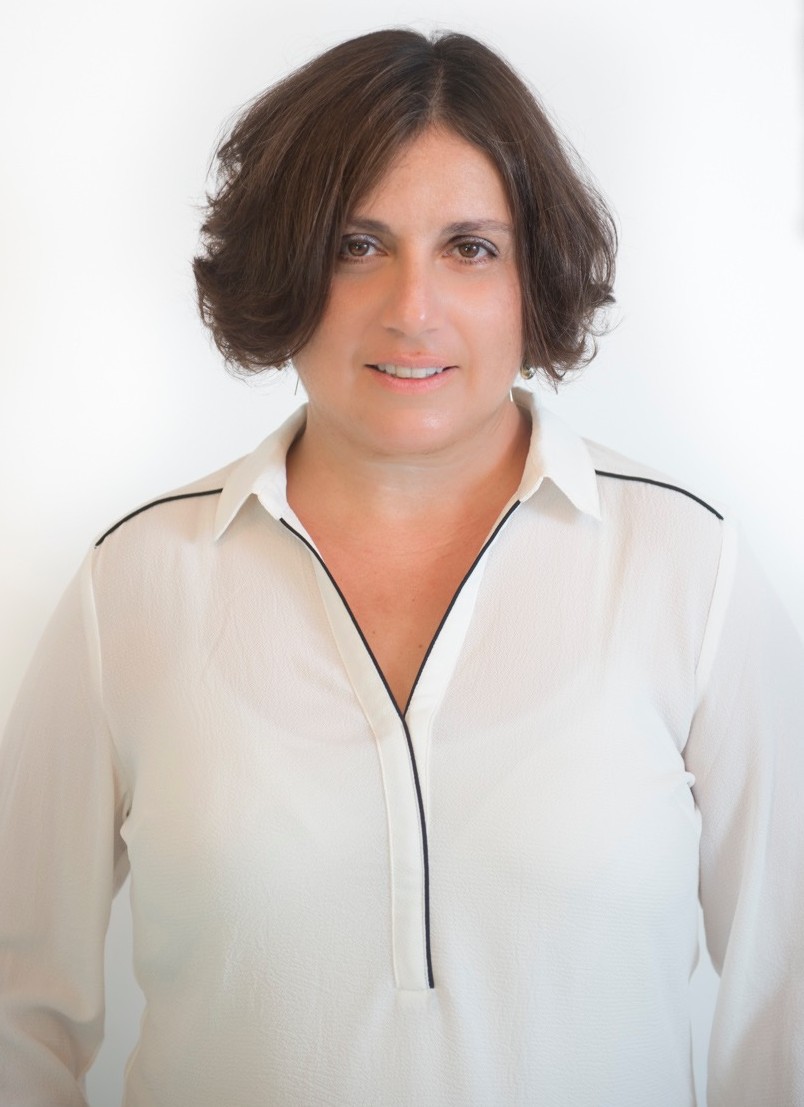
Eliad struggled with severe attention deficit disorder and dyslexia all her life. Despite poor grades in high school, she managed to earn a master’s degree in organic chemistry and began a PhD program in 1999, the same year the oldest of her four children was born.
It was only then, during a seminar course, that she discovered her reading and writing difficulties had a name.
“I did good research, but my presentation of the material in the seminar was a failure. There was always a problem of how to make people understand what I see. After that experience I was told I have dyslexia and I started reading about it,” says Eliad.
After finishing her doctorate, she went on her first job interviews and said nothing about her disabilities. But employers immediately saw her writing ability didn’t match her unusual intellect.
“I can see a solution before the problem—things others don’t think of. This is good for research. And I can get results quickly, like running upstairs,” she says.
When she interviewed for the position at Helios about a year ago, she told CEO Jonathan Geifman that she makes lots of spelling mistakes. “He just said, ‘Okay, everyone has something. Elon Musk has Asperger’s.’”
She was the fourth PhD hired to work for the company, which just like her thinks far outside the box.
SHIRA ISAKOV, women’s rights advocate and domestic violence survivor
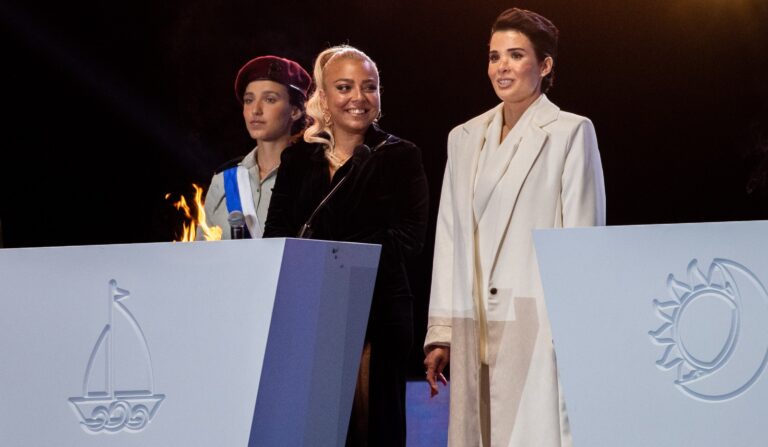
On the eve of Rosh Hashana in September 2020, Shira Isakov called her parents to say that she and her 22-month-old son were coming to stay with them to escape her abusive husband, Aviad Moshe.
And then her parents heard what happened next: Moshe’s vicious attack with a rolling pin and knife that landed Isakov in the intensive care unit. She may not have made it even that far, if not for her neighbor, Adi Guzi, coming to her rescue.
In April 2021, Isakov and Guzi were invited to light one of the Independence Day torches on Israel’s 73rd anniversary. Moshe was sentenced to 23 years in prison and required to pay hefty compensation for physical and emotional damages.
Isakov went public about her ordeal in the hope of changing laws and attitudes that protect abusers.
Among her accomplishments is getting lawmakers to cancel the legal guardianship rights of a parent charged with the murder or attempted murder of the other parent. This enabled her to apply for counseling for their son without Moshe’s permission.
She also fought successfully for Moshe to be charged with child abuse in the incident even though the boy was not physically harmed.
Isakov has raised tens of thousands of dollars to aid women in shelters and she lectures across Israel on domestic abuse. Her Instagram account has 61,700 followers.
“To women who are afraid to complain, I say: ‘Have the courage.’ That isn’t an easy place to be,” Isakov told reporters when her ex-husband was convicted.
KARINE ELHARRAR, Israeli Energy Minister
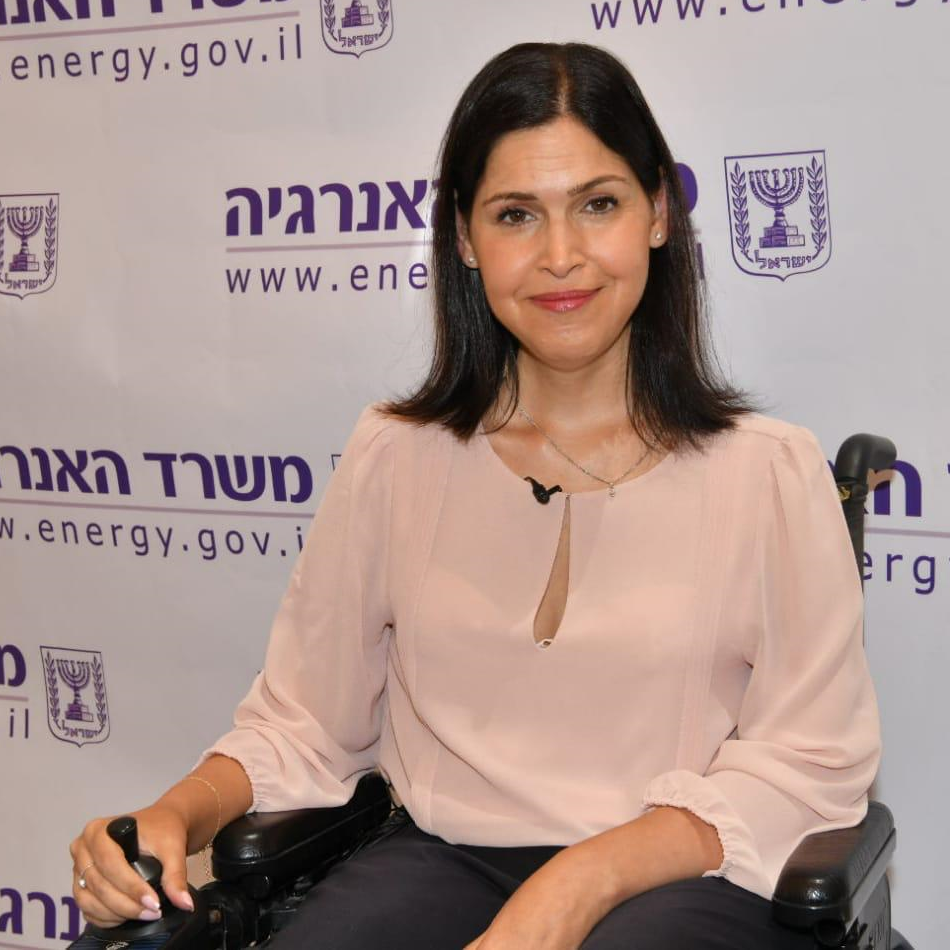
Elharrar, 44, has muscular dystrophy and has used a wheelchair since she was 20.
An attorney and longtime advocate for the rights of children and adults with disabilities, Elharrar was elected to the Knesset in 2012 and was appointed in June 2021 as Israel’s energy minister.
In October, her name appeared in international headlines when she revealed that she was unable to enter the COP26 climate summit in Glasgow because the entryways were not wheelchair accessible.
She received an apology from British Prime Minister Boris Johnson, but even more noteworthy was what happened in February: Egyptian President Abdel-Fattah el-Sisi, aware of the debacle in Glasgow, crossed a Cairo convention hall to greet Elharrar at the Egyptian Petroleum Show.
Elharrar has promoted legislative initiatives aimed at protecting women and children, victims of violence, assisting people with disabilities, establishing the rights of foster families, and reforming the supervision of child daycare centers.
SHIRLY PINTO, first deaf Knesset member
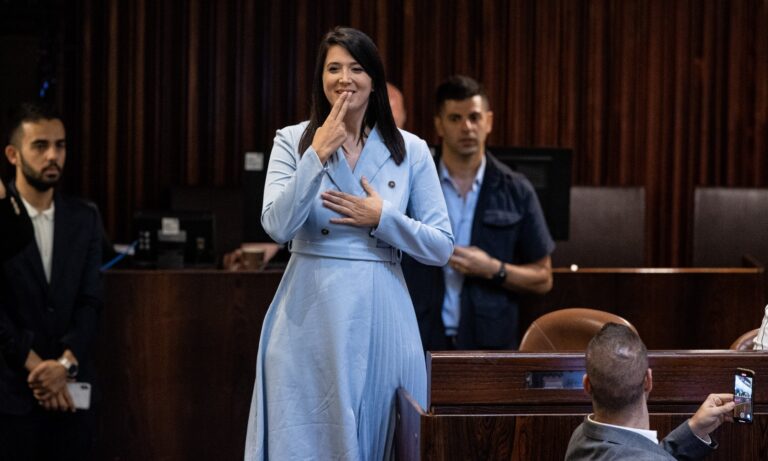
Pinto, a lawyer turning 33 this month, was the first member of Knesset to be sworn in using sign language. She received a standing ovation on July 12, 2021, when she addressed the plenum as the first deaf lawmaker in Israeli history.
In her speech, the air force veteran and disabilities activist said that as a person deaf from birth, she “experienced firsthand on my body and on my soul, the lack of accessibility, the lack of awareness and the inherent societal barriers.”
One of Pinto’s first accomplishments as a lawmaker was approval of a mandate for hospitals to stock transparent face masks for medical personnel so that patients or staff with hearing impairment can read their lips. She said that communication for Israel’s 750,000 deaf and hard of hearing people has been “hell” during the coronavirus pandemic.
PNINA TAMANO-SHATA, Israel’s immigration and integration minister
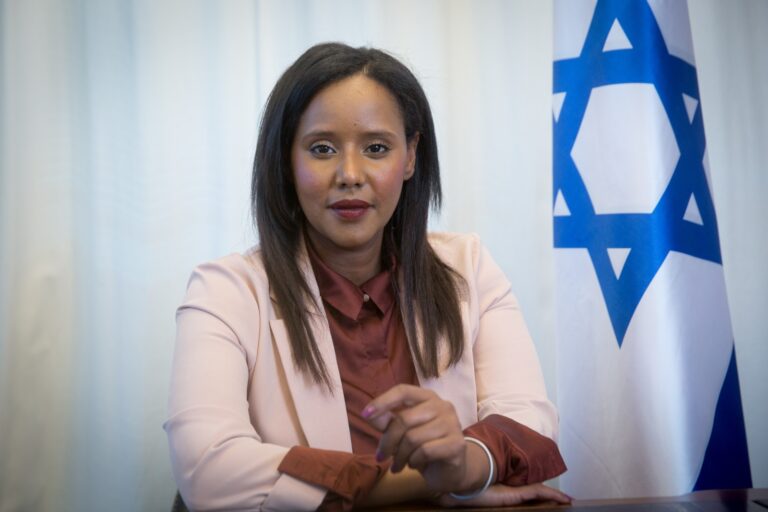
Born in 1981 in northern Ethiopia, Tamano-Shata spent much of her first three years in a refugee camp in Sudan.
The five Tamano siblings and their father were included in Israel’s airlift of almost 7,000 imperiled Ethiopian Jews from Sudan during Operation Moses between November 1984 and January 1985. Her mother was able to join them only several years later.
Tamano-Shata earned a law degree and later became the first Ethiopian woman to host a current-affairs talk show. She coordinated Sparks of Science, a project of the Weizmann Institute of Science for children from Ethiopian families. She was among the founders of the Headquarters for the Ethiopian Jews’ Struggle for Social Equality in 2005.
In 2013, she was elected to the Knesset, and in 2020 she became the first Ethiopian-born government minister.
Upon her appointment, she wrote: “For me, it is a landmark and the closing of a circle for this three-year-old girl who immigrated to Israel without a mother, crossing the desert on foot; growing up in Israel, and in the struggles that I have led and that I still lead for the community, integration, acceptance of others and against discrimination and racism; up to my public mission inside and outside the walls of the Knesset and today to the role of minister of immigration and integration.”
This article was first published by Israel21c.

























